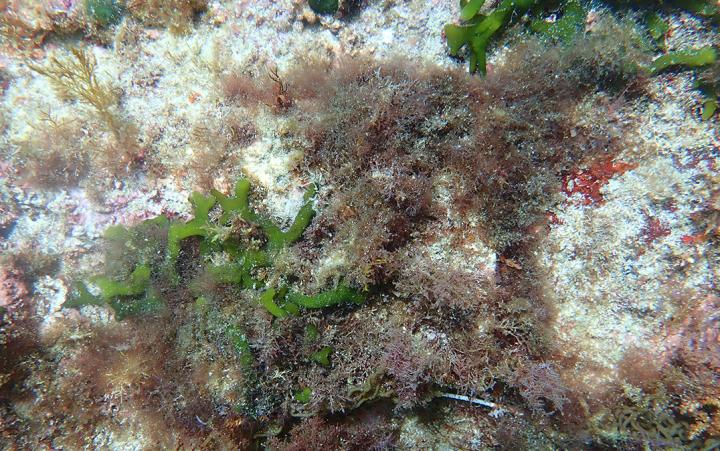Researchers from the University of Tsukuba find that ocean acidification restricts algal communities to a state of low biodiversity and complexity

Credit: University of Tsukuba
Tsukuba, Japan – Out with the old, in with the new, as the New Year’s saying goes, but not where the marine environment is concerned. Researchers from Japan have discovered that ocean acidification keeps algal communities locked in a simplified state of low biodiversity.
In a study published on 11th January 2021 in Global Change Biology, researchers from the University of Tsukuba have revealed that as oceanic carbon dioxide levels rise, the biodiversity and ecological complexity of marine algal communities decline.
Ocean acidification is the continuing increase in the acidity of the Earth’s oceans, caused by the absorption of atmospheric carbon dioxide (CO2). The largest contributor to this acidification is human-caused CO2 emissions from the burning of fossil fuels.
“Ocean acidification is harmful to a lot of different marine organisms,” says lead author of the study Professor Ben P. Harvey. “This affects not only ecosystem functions, but the goods and services that people get from marine resources.”
To examine the changes caused by CO2-enriched waters in algal communities, the researchers anchored tiles in the ocean for the algae to grow on. The tiles were placed in reference conditions (i.e., ones that represent the structure and function of biological communities subject to no/very minor human-caused disturbances) and acidified conditions. The team used a natural CO2 seep for the acidified conditions to represent the CO2 conditions at the end of this century, and compared differences between the cooler months (January to July) and warmer months (July to January).
“We found that the tiles ended up being taken over by turf algae in the acidified conditions, and the communities had lower diversity, complexity and biomass,” explains Professor Harvey. “This pattern was consistent throughout the seasons, keeping these communities locked in simplified systems that had low biodiversity.”
The team also transplanted established communities between the two conditions. The transplanted communities ultimately matched the other communities around them (i.e., high biodiversity, complexity and biomass in the reference conditions, and vice versa for the acidified conditions).
“By understanding the ecological processes that change community structure, we can better evaluate how ocean acidification is likely to alter communities in the future,” says Professor Harvey.
The results of this study highlight that if atmospheric CO2 emissions are not reduced, we may see an increased loss of large algal habitats (such as kelp forests). But the study also shows that shallow-water marine communities can recover if significant reductions in CO2 emissions are achieved, such as those urged by the Paris Agreement.
###
The article, “Ocean acidification locks algal communities in a species-poor early successional stage,” was published in Global Change Biology at DOI: 10.1111/gcb.15455
Media Contact
Naoko Yamashina
[email protected]
Related Journal Article
http://dx.




